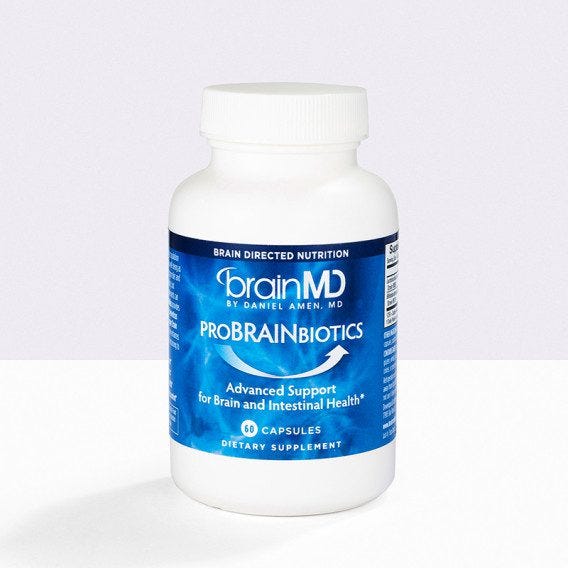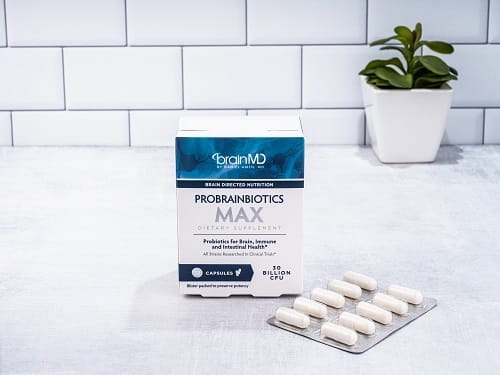6 Helpful Ways to Boost Your Immune System
Medically Reviewed by Dr. Parris Kidd
Many take extra (even extreme) precautions in safeguarding their health during the colder, darker, winter months. It’s prudent to remain vigilant when it comes to personal health and safety, especially if you have preexisting medical conditions or a weak immune system.
As with any illness, there are many practical steps and preventative measures you can take to protect yourself and your family. Though there’s no guaranteed way to avoid getting sick with a cold, flu or virus, supporting your immune system is a smart place to start.
In addition to everyday health habits, here are 6 simple ways to naturally build up your immunity…
6 Natural Ways to Boost Your Immune System
- Healthy Foods
Eating a healthy diet is common sense for overall well-being. While no single food will magically fend off illness, certain nutrients can help protect your body from billions of bacteria, viruses, and other germs. Some nutrients and foods that support healthy immunity include:
- Garlic, turmeric root, ginger root
- Mushrooms – shiitake, maitake, reishi, enoki, or oyster
- Active omega-3 fatty acids (EPA + DHA), found in salmon, tuna, and other cold-water fish
- Zinc-rich foods, like oysters, crab, grass-fed lean meats and poultry, and chickpeas
- Selenium-rich foods, such as broccoli, sardines, tuna, Brazil nuts, and barley
- Vitamin C-rich foods, like guavas, kiwis, bell peppers, strawberries, Brussels sprouts, oranges, papaya, broccoli, pineapple, cantaloupe, mango, tomato, kale, and snow peas
- Vitamin E-rich foods, including sunflower seeds, almonds, avocados, hazelnuts, spinach, Swiss chard, butternut squash, kiwis, broccoli, and rainbow trout
- Quality Sleep
Quality sleep stimulates the immune system, while sleep deprivation can depress your immunity.¹ While minimal required levels of sleep do vary, studies indicate adults should try to get an average of 7 to 9 hours of sleep per night. Those with a compromised immune system should get even more sleep.
- Increase Vitamin D
Vitamin D is crucial for healthy immune regulation and inflammatory response. Failure to get enough vitamin D can lead to health problems and other mental and physical difficulties. If you aren’t getting 10 to 30 minutes of direct sunlight each day, supplementing with at least 2000 IU of vitamin D3 is a good idea.
- Physical Activity
Getting at least 30 minutes of aerobic activity daily will increase your blood circulation and can help strengthen your immune system. The increase in blood flow improves delivery of nutrients to your bone marrow, spleen and other organs of immunity. Better circulation also helps clear waste products from the body and transport hormones that keep the immune system alert and active.
- Stay Hydrated
Hydration is key to the functioning of all our organs including those of the immune system. Every organ system in the body needs adequate hydration to function properly. Water helps cleanse the body and remove toxins. By keeping your body systems well-hydrated, you allow them to work optimally so they can maintain healthy immunity.
- Nutritional Support
To naturally boost and maintain your immune system, it’s important to create healthy habits for physical and mental well-being. One of the best ways to boost your immunity is with high-quality vitamins, minerals, and nutrients. Developing a supplement routine is nutritional insurance for overall wellness.
Supplementing with precise combinations of probiotic strains can help balance gut bacteria and improve the intestinal lining’s natural protective seal. Few of the commercially available probiotic formulas are proven to achieve these goals. Even fewer are shown to help gut immunity and overall brain and body wellness. BrainMD is proud to recommend…
ProBrainBiotics

ProBrainBiotics has the identical probiotic strains, at the same daily intake levels, that were put through two double-blind, placebo-controlled clinical trials and found to benefit intestinal function, mood, and coping with stressful experiences.* These healthy bacteria are Lactobacillus helveticus Strain R0052 and Bifidobacterium longum Strain R0175.*
These powerful strains:
- Help repel harmful bacteria*
- Maintain the tight seal of the gut lining to help prevent “leaky gut”*
- Aren’t destroyed by stomach acids, so they can reach the intestines and take up residence there*
- Support healthy gut immune functions*
ProBrainBiotics MAX

ProBrainBiotics MAX is unique for offering clinically defined probiotic strains with brain, immune, and intestinal benefits all in one daily capsule.* It offers seven probiotic strains, all with health benefits documented from clinical trials.*
Here’s what you can expect from taking ProBrainBiotics MAX:
- More friendly bacteria in your gut*
- Healthy, comfortable digestion*
- Better immune system function*
- Positive mood and emotional balance*
- A healthy response to everyday stress*
Go With Your Gut!
The gut is the main route of contact with the external environment and, besides helping with digestion and a healthy mood, is a huge contributor to immunity. By some estimates, 70-80% of your immune cells reside in or around the area of your gut.²
It is vital to increase the level of good bacteria in the gut. These bacteria typically help tighten the intestinal junctions through which leaking occurs. Probiotics designed from clinical research provide good bacteria to balance undesirable bacteria from becoming too dominant in the gut.
If you aren’t taking a high-quality, brain-directed probiotic supplement, consider adding one to your daily vitamin regimen to help boost your immunity. If you take good care of your immune system, it will take good care of you!
At BrainMD, we’re dedicated to providing the highest purity nutrients to improve your physical health and overall well-being. For more information about ProBrainBiotics, ProBrainBiotics MAX and our full list of supplements, please visit us at BrainMD.
References:
- This Is What You Need to Know About the Standard American Diet! -
- What Are the Pros and Cons of Western vs. Eastern Medicine? -
- Why Experts Say You Should Take Vitamin C, Vitamin D3 and Zinc -
- These Are Some of the Best Natural Herbs for Energy -
- What Are the Top Health Benefits and Types of Saunas? -



